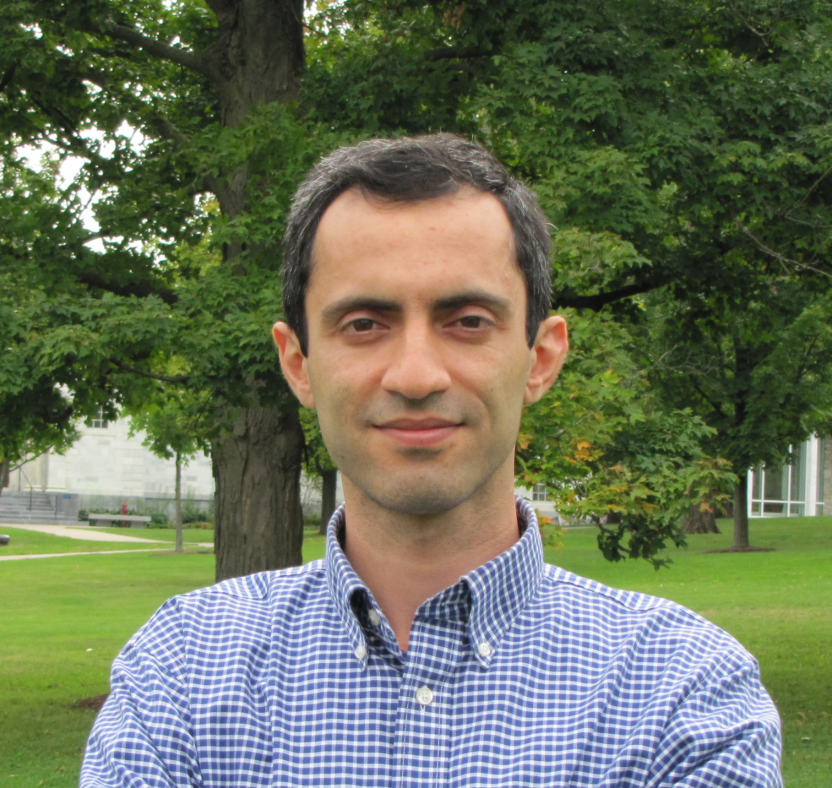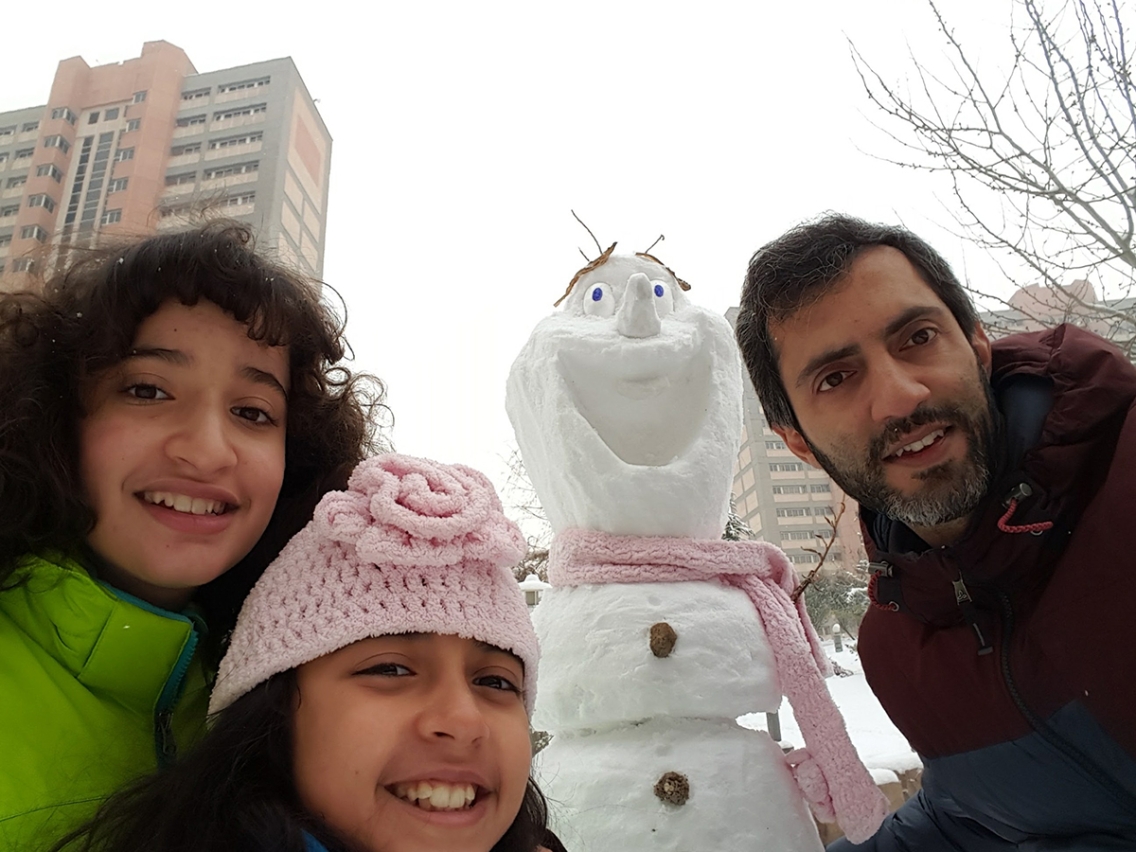Middlebury Professor, on Academic Leave in Iran, Faces Uncertainty

Feb. 3 Update: Ata Anzali and his family successfully returned to the U.S. on February 3.
Feb. 2 Update: Ata Anzali now plans to return to the U.S. with his family on February 3. He discussed the decision on VPR’s “Vermont Edition” on January 31.
MIDDLEBURY, Vt. – Ata Anzali, assistant professor of religion at Middlebury College, and his family are facing great uncertainties as they come to terms with the ramifications of the Trump administration’s recently announced travel ban for immigrants from seven Muslim-majority nations, including Iran. Anzali, an Iranian citizen who has a green card, is on academic leave in the Iranian city of Tabriz. He says the lack of clarity around the new regulations leaves his family with many questions, despite a partial reversal that would allow green card holders to travel to the U.S.
“By designating us as permanent residents, the government of the U.S. has already made a commitment to us, that we have the right to live and work in the U.S. permanently,” he said. “I was just flabbergasted when I saw the news.” Like him, Anzali’s wife and 12-year-old daughter are also legal permanent U.S. residents. His 9-year-old daughter is a U.S. citizen.
In a January 29 Associated Press story, Anzali described his dilemma. “This is causing so much confusion, what are we supposed to do? Even now I can’t tell you, I don’t trust this latest development,” he said referring to the Trump administration’s decision that permanent U.S. residents from the affected countries would be allowed to return.
Anzali left the U.S. in early July 2016 for Tabriz, where both he and his wife are from, in northwestern Iran. While there, he intended to do some archival work and field research, focusing on the early modern and modern developments of religion in Iran.

According to Anzali, he and his family were scheduled to return to the United States in June. He said that the travel bans prompted them to panic. They started packing and he bought tickets for himself and his family to fly back to the U.S. on January 29. Then he cancelled their flights with the fear that they might be detained or deported. He wants to spare his children what could be a traumatic experience. Anzali had also consulted with the College administration, including President Laurie Patton, before making the decision not to go.
“There is sadness and anger, but most of all confusion,” he said. He and his family are considering two options: coming back this week while the stay is in effect for Logan Airport or, if they feel the situation is about to be resolved, sticking to their plans and coming back in June.
Anzali told the Associated Press that he and his wife still have plans to close on a new home near Middlebury.
“We are deeply concerned about the impact of this on Ata and his family, and have been very focused on supporting him,” said Andi Lloyd, vice president for academic affairs and dean of the faculty at Middlebury.
“More broadly, the situation was very troubling to us given that a belief in free inquiry and expression across national boundaries is the essence of what we do at Middlebury and in higher education,” said Lloyd. “Although we are a small college in rural Vermont, members of our community come from all over the world, and we treasure that aspect of our identity.”
Middlebury President Laurie Patton sent an all-campus email on January 28 regarding the travel ban. Her message advised the community to act with caution and be aware that the International Student Services Office was working closely with senior administrators to monitor the situation. Lloyd said that in the days to come, she and other senior administrators will continue to consider the impact on Middlebury and how the institution should respond.

